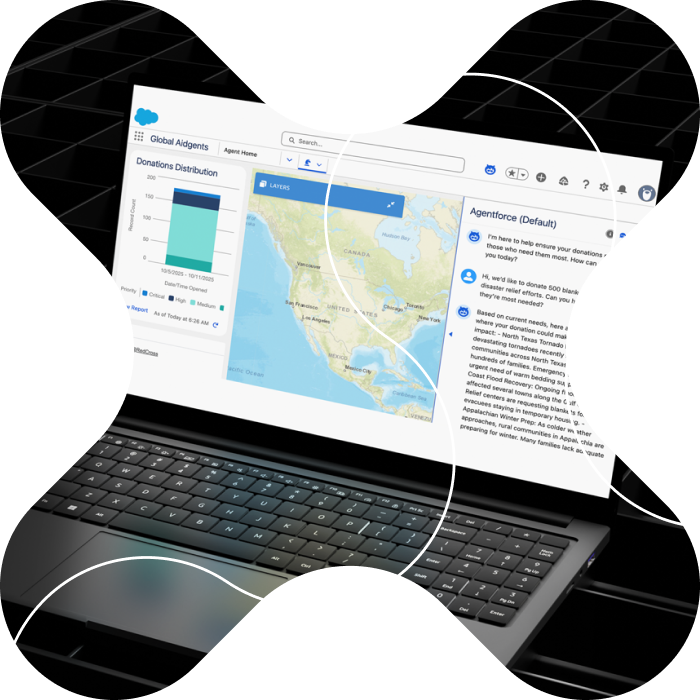TL; DR: This article depicts how COVID-19 helped accelerate the transformation of the hospitality and tourism industry, and how technology is leading this overhaul. This blog also touches upon tech trends related to travel, such as digital nomadism, the combination of augmented reality and the metaverse for customer experience as much as the Internet of Things (IoT). With the increasing digitalization of the sector, new possibilities have emerged for the sector.
Navigating the wave of change in the hospitality and tourism industry post-pandemic is no small feat. With technological advancements playing a key role in reshaping this sector, understanding how it has transformed and continues to impact this industry is crucial.
Before turning my steps towards marketing, I ran for almost 10 years my own company dedicated to Adventure Travel & Corporate Events. I’ve witnessed with awe how, year after year, the industry has evolved. Whether you're a business owner, an avid traveler, or someone simply considering entering this precise niche, diving into the world of tech-infused tourism can lead to insightful information and open up new horizons. Let's explore together how technology has become a game-changer in the hospitality and tourism industry after the pandemic.
Examining the Pandemic's Impact on the Global Tourism and Hospitality Industry
Prior to the COVID-19 outbreak, the travel and tourism industry was a major player in the world economy, accounting for 10 percent of the world's gross domestic product (GDP) and supporting the livelihoods of over 320 million people.
However, the onset of the pandemic led to a massive upheaval, particularly for international travel. The World Tourism Organization reported a drop of 74 percent in international visitors around the globe. That's a billion fewer tourists compared to 2019, largely due to the steep fall in demand and broad travel restrictions.
The tourism sector, a key economic contributor and the third-largest export category, was compelled to halt operations and revise strategies to not only withstand the pandemic's devastating effects, but to plan for the future.
Technology Takes the Lead
Amidst adversity, a trend that was already picking up steam even before the pandemic has now truly taken off: the merging of technology with the hospitality and tourism industry.
Prior to COVID-19, travel technology was a silent powerhouse that strengthened daily operations and enhanced customer experiences. It created a synergy between IT, e-commerce, and various solutions used in the tourism, travel, and hospitality sectors. Starting in 2020, its significance became even more apparent, reaching a point of no return.
Under these circumstances, travel in the "new normal" has now morphed into a more conscious, tech-savvy, and authentic experience. The evolution is not merely a response to the necessity the pandemic sparked; it also reflects a profound shift in global perspectives.
Digitalization and technology are at the heart of the changes in tourism and hospitality. Online bookings, mobile check-ins, digital concierge services, and virtual experiences have become integral parts of the industry. The use of AI, chatbots, and automation, is simplifying operations and improving guest experiences, setting the stage for an industry that’s resilient and ready now to face the future. Let’s explore how these technologies are impacting the industry.
5 Emerging Trends in Tech-Powered Travel
The future of the tourism and hospitality industry is ripe with potential. To explore exciting possibilities only brought about by technology, here are five emerging trends in the travel industry:
#1 Digital Nomads Blending Work and Travel
The pandemic era has amplified the 'bleisure' trend. A blend of business and leisure, the phenomenon can largely be attributed to advances in remote work. This trend encourages employees to work from anywhere, including hotels, vacation rentals, or even foreign countries, striking a balance between productivity and relaxation. It encourages travelers to explore new destinations not just during vacation but as part of their everyday lives.
#2 Digital Assistants
From Siri and Alexa to specialized AI chatbots, digital assistants offer 24/7 support, ensuring prompt responses to travelers’ questions. These smart devices are also driving voice search trends, particularly for travel bookings, making the travel planning experience more interesting for the tech-savvy.
This is the case with Booking.com, which in 2022 launched a native in-app voice assistant, showing its commitment to enhancing the user experience. This innovative feature revolutionized their service, making travel planning more intuitive and hands-free for users globally.
#3 Augmented Reality (AR)
AR enriches traveler's real-world environment by providing useful information or entertainment through graphic overlays, sounds and other sensory stimuli. While Virtual Reality (VR) immerses users in a completely artificial environment, AR adds digital information on top of our existing surroundings.
AR technology can assist travel businesses in enhancing customer interactions, making them more engaging and personalized. City tour companies are using this technology to overlay historical facts and 3D images on real-world landmarks, creating an even more interesting sightseeing experience.
#4 The Metaverse and VR Experiences
The Metaverse, somehow an extension of VR and AR tech, provides a digital platform for social interactions, including virtual travel experiences. Some early adopters are arising, such as The Royal Commission for AlUla. Since February 2023, you can explore a 3D model of Hegra’s Tomb of Lihyan, a UNESCO World Heritage site.

But travel experiences in the Metaverse are not limited to real-world locations. Instead, the thrilling possibility of creating whole new worlds where only imagination is the limit offers endless opportunities for industry.
Businesses like Qatar Airways have already started capitalizing on this trend by introducing VR experiences for their customers.
#5 Internet of Things (IoT)
IoT technology, which enables interconnectedness among everyday devices, is shaping the industry's future. From smart hotel rooms where guests control amenities via smartphone to luggage sensors allowing real-time tracking at airports, the IoT is set to transform customer experiences in travel and hospitality.
2023 and Beyond: The Future Outlook for the Hospitality and Tourism Industry
The future of the travel and tourism industry looks bright, filled with opportunities for growth and transformation. The World Travel and Tourism Council's Economic Impact Report forecasts a dynamic recovery for the global travel and tourism sector, set to reach $9.5 trillion in 2023. This suggests a 95% recovery rate compared to pre-pandemic levels in 2019.
While challenges remain, the use of technologies such as AR, IoT, AI, and blockchain will streamline processes, make travel safer, and offer travelers more control and customization.
For all businesses and stakeholders in the travel and tourism industry, it's time to welcome the possibilities this new era brings. Embrace technology to create smart, memorable, and sustainable travel experiences for everyone!
If you need a hand in determining where to start or how to proceed with your digital transformation, keep in mind that our teams at Nearsure specialize in precisely that, revolutionizing businesses through high-caliber tech transformations. Get in touch with us to write the future of travel together.





.png)